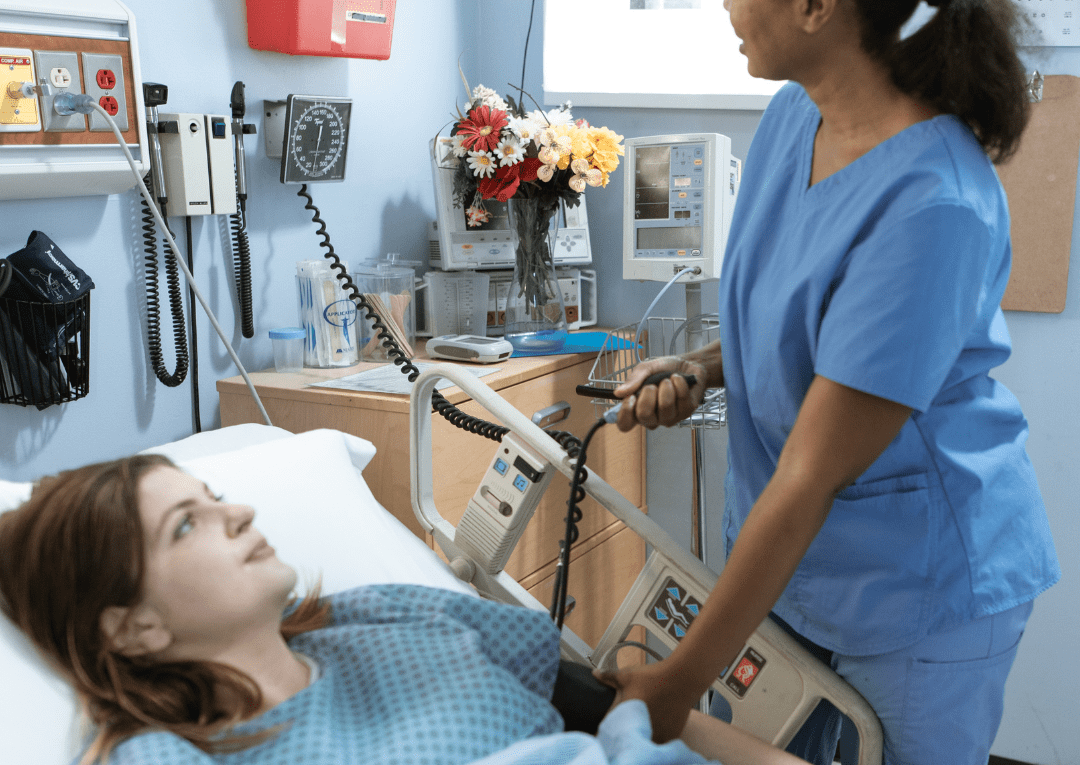Nursing a Career With Almost Limitless Opportunities
Nursing, a Career With Almost Limitless Opportunities. According to Forbes Magazine, the industry with the largest projected growth rate over the next ten years is the medical industry. It is expected to create the most jobs, about 3.3 million in the decade 2020-2030. The medical profession with the largest range of occupations is nursing. You may have seen nurses on television shows and thought it looked like an exciting career. Perhaps you have friends and family in the profession who are encouraging you because they see your potential for providing comfort and care to others Or maybe you are excited by the many opportunities nursing affords like a good salary, advancement, and the chance to move your career with you if you choose to relocate. Whatever the reason you’re considering this profession, this is the perfect time to make that dream a reality.
In-Hospital Nursing
Nurses are most noted for hospital bedside care and the opportunities for choosing what areas of the hospital they want to work in are many. Nurses can choose to work on medical-surgical units, cardiac rehab floors, emergency rooms, intensive care units, and so many more. Many departments, such as labor and delivery or newborn nursery units, have specialty subsets of care, such as neonatal intensive care units, or high-risk labor and delivery. You can see where the possibilities seem limitless, and that’s only when you consider in-hospital work.
- Surgical Nurses care for patients before, during, and after surgery and even there you can find subspecialties like cardio, neuro, transplant, and reconstructive surgeries.
- Critical Care Nurses work with patients with life-threatening conditions. They typically work in ICU and CCU settings. It is the one area of nursing hit with the largest shortage of nurses, making them in high demand.
- Neuroscience Nurses work with patients who have neurological conditions, possibly resulting from injuries to the spine.
Non-In-Hospital Nursing
There are seemingly limitless opportunities for nurses outside of hospitals as well.
- A Nurse Health Coach usually works with insurance companies or large corporations teaching their clients and employees about living healthier lifestyles.
- Legal Nurse Consultants work with attorneys, giving their expertise in cases involving things like insurance fraud, or malpractice.
- School Nurses can treat student injuries, give sports exams and consult with faculty and staff on best health practices within a school or school district as well as many other duties within the school setting.
- Public Health Nurses are typically employed by public, state, or local governments. They give immunizations, assist in community disaster relief, advise on contagious and communicable diseases, and provide care in public health facilities.
Advanced Degrees in Nursing
Earning a Master’s degree in nursing opens up even more potential in the profession. With your MSN (Master’s of Science in Nursing), you can become a…
- Nurse Practitioner. Those nurses most often act as specialty or primary care providers. They can do physical exams, diagnose and treat acute and chronic health problems, prescribe medicines and diagnostic tests, and manage care. The average annual salary for a Nurse Practioner by the year 2028 is expected to be $242,400.00 and the growth rate for the profession is expected to be 28% during that same time.
- Certified Registered Nurse Anesthetists provide anesthesia care before, during, and after surgical, therapeutic, diagnostic, and obstetrical procedures.
- A Certified Nurse Midwife provides obstetrical care for women before, during, and after birth.
- An MSN also allows you to pursue a career in Nursing Education, a field that will grow at the same rate as the nursing field in general.
- A Ph.D. in nursing is usually pursued by nurses who wish to enter into the field of research.
How to Become a Nurse
Most public and private universities and colleges offer degrees in nursing.
- You can receive a diploma in Practical Nursing (LPN) which is usually a one-year program offered at many technical schools.
- An Associate in Nursing degree is typically a two-year degree program and is offered at many public community colleges.
- A Bachelor’s in Nursing or BSN is becoming the standard for the profession and is a four-year degree program found at most public, as well as private colleges and universities.
- MSN or Master of Science Degree Nursing is typically a two-year program after one has earned their BSN.
Online Learning
Whether you’re just beginning your nursing education or furthering yours by going from BSN (Bachelor of Science Nursing) to MSN (Master of Science Nursing), you’ll need to take your already busy schedule into account. Fortunately, many programs can be pursued online. Earning an online degree allows you to complete the coursework when it fits into your schedule so you can continue to work as you learn.
Whatever field of nursing you pursue or however you pursue it, you’ll find it to be one of the richest, most rewarding, and most satisfying careers you could have.





